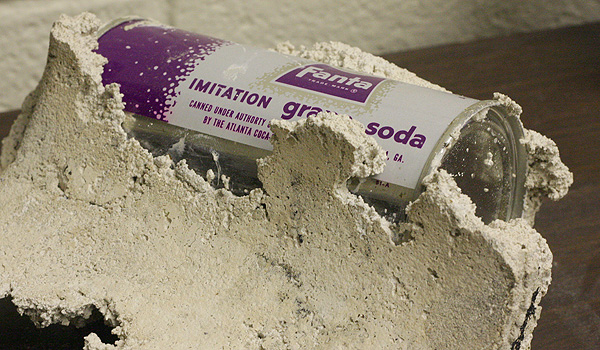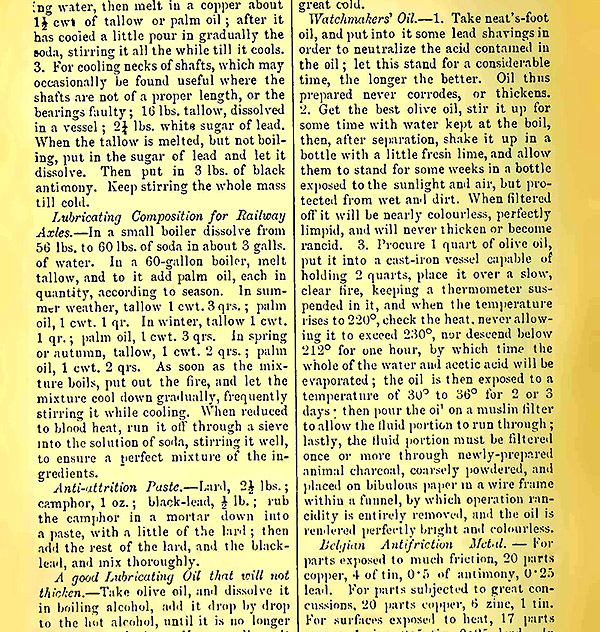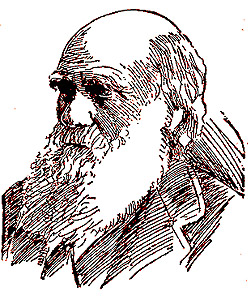|
||||

 Daily Notebook
Daily Notebook






|
|
2009 February 28 |
Venus
Venus has been in the evening sky for weeks, and until the evening of the 26th, I had not looked at it through a telescope. Just before dinner, I hastily put my old Celestron 5 on a tripod in the driveway, aimed it at Venus, and held my DSLR up to the eyepiece. Results: Not too bad, considering... Financial oddity of the day Latest thing from DiscoverCard: a rebate of one month's interest if you make six monthly payments on time! What? They've been lending money to people who don't normally make six consecutive monthly payments on time? I must be horribly old-fashioned. I thought the credit card would stop being accepted if I didn't make the payments on time. Things like this are why we have a banking crisis. |
|
|
2009 February 27 |
Comet Lulin again
This lighter rendering of yesterday's Comet Lulin picture may look better on your screen than the original, even though it has no deep blacks. About the stock market... As the stock market continues to plunge (fluctuat nec mergitur?), I have just two observations. (1) A falling stock market means the fish aren't biting right now. It doesn't mean there are no fish. That is, you are looking at people's willingness to buy stocks right now, and nothing more. (2) We are now hearing a lot of people saying, "My savings are in the stock market, and I'm losing everything." If your savings are in the stock market, you've misunderstood something. The stock market is for investing. That means taking risk on behalf of others, to fund their business ventures. Quite a few people were lulled into thinking the stock market was a bank, which it definitely isn't. Investing in stocks for retirement is not a bad idea if you have a 20-year timespan or so, to smooth out fluctuations, but there is always some risk. Crazy economy Meanwhile, as the American Dream supposedly collapses all around everyone, Zillow thinks the value of my house is doing this:
What am I doing right? Or are they just over-optimistic? |
|
|
2009 February 26 |
Comet Lulin
Here's Comet Lulin again, a single 2 minute exposure taken through a 300-mm f/4 lens piggybacked on a guided telescope, late on the evening of February 23. This picture also appared in the Athens newspaper. Short notes My copy of Windows 7 Beta started saying, "This copy of Windows is not genuine," in the lower right-hand corner of the screen, and then turned the screen background black. Then, as it continued installing updates, it invited me to authenticate it on line, authentication succeeded, and all was well again, except that I had to reset the desktop background myself. Department of mixed symbols: Spotted by Cathy, in a craft store the other evening: an Easter decoration consisting of a cross, and on it a figure, not of Christ, but of a female (?) angel, with the words, "I will be with you always" (which in fact were spoken by Jesus). Hmmm... What religion believes in a crucified angel? Not us! Yesterday I mentioned a "short-lived" Atlanta camera store that is apparently mentioned nowhere else on the Web. Does that mean I've created a Googlewhack? (As soon as Google indexes this page, which won't happen immediately.) It's an imperfect Googlewhack because it doesn't consist of precisely two words. |
|
|
2009 February 25 |
Saturn and Titan
We are close to Saturn's ring plane right now, which means we see the rings nearly edge-on, and we can see satellites pass in front of the planet. A few hours after I took this picture on the evening of the 23rd, Titan (the spot at the left) passed across Saturn, but I didn't wait up to see it. This is a stack of about 1400 video frames from an 8-inch telescope. End of the camera-store era? [Updated.] After the next economic spasm, going to the camera store will no longer be possible in many medium-sized towns. Wolf/Ritz Camera, with chain stores all over the East, is going into bankruptcy (according to reports). This may mean, for all practical purposes, the end of photography as distinct from computer graphics and related technologies. Wolf had lost their niche. They made their money from in-store film processing, and as the demand dropped off, they started selling cell phones, TVs... Camera stores are jam-packed, not just with equipment, but with knowledge. Some that I remember fondly include Bookman's and The Sport Center in Valdosta in the 1960s; The Camera Shop, in Athens, Ga., in the 1970s and 1980s; the old Wolf Camera in Atlanta; Atlanta Photo Supply, which metamorphosed several times and was eventually absorbed into KEH; the short-lived Foto-Crafts-Atlanta, where I bought my Olympus OM-1 in 1976; Spiratone in New York in the 1980s (they even exhibited one of my pictures); Olden Camera, also in New York, visibly declining in the 1980s but full of curiosities (and reportedly still there); 47th Street Photo, in the Hasidic diamond-trading district, in the early 1980s (distinct from similarly-named outfits that have popped up later); Cambridge Camera Exchange with Seymour's Exakta doing business from a telephone in one corner, New York, 1986 (but they had a reputation for unreliability); B&H in New York since the mid-90s; Showcase in Atlanta (still thriving); Grays of Westminster (London) and Campkins (Cambridge, now gone); I could go on... And there may soon be no such thing as a camera store. |
|
|
2009 February 24 |
Internet Explorer 7 freezing (hanging) I am told — but cannot yet confirm — that if Internet Explorer 7 freezes up (which is a problem I've been having), you should update your video driver. Reportedly, IE7 does some advanced video manipulations to speed things up, and they don't always work. Update: This didn't help. Although I suppose the updated video drivers are desirable for other reasons, I'm still getting fairly frequent hangs, especially when viewing cnn.com or ajc.com, on several machines. It may be an interaction with antivirus software, although the three machines that I use have different antivirus packages. Maybe it's time to switch to Firefox. Further update: A correspondent points out (and my experience confirms) that the hangs are associated with Flash ads and/or delayed responses to HTTP requests (if the server goes to sleep, IE7 may freeze rather than timing out properly). There seems to be no easy solution except to switch browsers. Recall that I switched from IE6 to Opera and then to IE7, and now I think it's time for Firefox. |
|
|
2009 February 23 |
Two exposures are better than one
Comet Lulin appears to be fading, and I haven't photographed it again. Here is another picture from February 19. This is a stack of two 90-second exposures with the same camera and filter. The color is partly false — the filter that blocks Athens' streetlights also makes grays go blue-green — and the stars are slightly elongated because the exposures are lined up on the comet, which moved slightly in just a few minutes. |
|
|
2009 February 22 |
Historical artifact
I am now the possessor of one of the University of Georgia's strangest historical artifacts. While fixing the source of the flood the other day, the plumbers found a Fanta soft drink can inside the concrete wall, encrusted in cement. Seeing only its shape, they first thought it was part of the plumbing. It was extracted and given to me for the curiosity shelf in my office, where it now sits beside the germanium transistors with 1959 date codes and other curiosities. It was apparently dropped or thrown into the concrete wall in 1968, when the Boyd Graduate Studies Research Center was being built. Happy birthday, Cathy! You are now 1.5 times as sweet as sixteen. |
|
|
2009 February 21 |
First view of Comet Lulin
This rather poor view of Comet Lulin is a single 90-second exposure with a Canon EOS 20Da, Astronomik CLS filter, Sigma 105-mm lens at f/2.8, piggybacked on an equatorially mounted telescope. This was taken from in town (Athens, Ga.); the view would have been much better out in the country. The comet is about fourth magnitude and might well be visible to the unaided eye in a dark sky; I had no trouble picking it up in binoculars. In the picture (enlarged from the center of the frame), the brightest star is SAO 138813, seventh magnitude. The picture was taken around midnight EST, February 19-20. Adobe Reader or Acrobat crashing under Vista If you use Vista in a roaming user profile system, you'll have trouble with Adobe Reader and Acrobat, because they try to use nonexistent file locations. The solution is to log on as administrator, right-click on the .exe file, and set Windows XP compatibility. Deleting the defective plug-in file, Annots.api, doesn't fix the problem. But while I'm working on it, I generally do delete two other plug-ins, Accessibility.api and Readoutloud.api, so Acrobat won't spend half a minute "preparing the document for reading" every time you open a file. Where to get your car fixed at night I recently learned that Pep Boys stores offer service 7 days a week, until 9 p.m. on weekdays. Cathy's car needed a couple of taillight bulbs replaced — a job requiring some disassembly — and we drove up at 8 p.m., were sent into the parts store to buy the bulbs, and got them installed free. (The price is right!) I have no idea how well they do more advanced jobs, but I suspect their customers, many of them advanced amateur mechanics, are rather picky about both quality and price. When we were newlyweds a quarter century ago, Melody and I used to take our car to Longo Toyota (in Los Angeles, or more precisely El Monte) for evening service. Nowadays they only show their service department open until 7 p.m., but I'm not sure if that is when they close or just the latest they can start a job. |
|
|
2009 February 20 |
Two economic notes Quote for the day, from Greg Mankiw: You can measure how many jobs are created between two points in time. But there is no way to measure how many jobs are saved. Even if things get much, much worse, the President can say that there would have been 4 million fewer jobs without the stimulus. Meanwhile, inflation is back, at least at the wholesale level. (The reported rate of 0.8% per month, seasonally adjusted, is a whopping 10% per year. But this is probably just making up for odd declines in recent months and is not really the long-term rate.) By the time you read this on Friday morning, the CPI-U data may also be out. Look for it here. I've been predicting inflation (see also this). |
|
|
2009 February 18-19 |
Re-invent the Internet? Yes, please! Experts at Stanford have finally caught on to what I've been saying for 15 years: We need to re-invent the Internet and make it more secure. The fatal flaw of the present Internet is that it is very easy to falsify the origin of any communication. The system believes whatever you say about who you are and where you are. That's why we have spam and networked malware. It would be technologically relatively easy, if everyone were willing, to mark every data packet with its true origin. Just don't allow machines on the network if they don't cooperate — or flag all their data as suspicious. And the Stanford experts have finally caught on that people are willing to give up some anonymity for safety. Look at the popularity of Facebook, MySpace, etc. — communities where there is some central control and accountability, though it's far from perfect. There are good reasons you may sometimes want to conceal your identity, but when you do, people have a right to know you're doing it. Let's distinguish anonymous communication, where you don't say who you are, from falsified identity, where you claim to be someone or somewhere you aren't. Who would oppose this? Mainly the pornography subculture that has a substantial impact on how the Internet is run. Plenty of people only want anonymity, not safety. Also, the bad guys themselves (spammers and other pests) can be expected to pipe up against anything that will stop them, and to offer specious technological arguments. And this is something we've seen with other kinds of communication in the past. When Caller ID came in, people complained it was going to violate their precious privacy. The solution? You can make calls without sending Caller ID data (by dialing a special code), but the recipient may choose not to take your call. Short notes Up-and-coming financial problem of the future: Deadbeat parents. That's right. The adolescents of the 1970s are now in their fifties, and not saving for retirement, and apparently expecting their children to support them. Terrorism as crime, not war: The New York police are treating terrorism as organized crime, not war. That's an interesting approach, and quite possibly the right one, because it doesn't dignify the terrorists as fighters for some legitimate cause or nation. They're just thugs! (Disclaimer: Although I do some research related to gathering data about terrorism, I have no expertise on this point, and what you've just heard is only my superficial impression.) |
|
|
2009 February 17 |
Before petroleum To put yesterday's entry in context, here is some lubrication lore from Workshop Receipts (1890).
Isn't petroleum handy? |
|
|
2009 February 16 |
Oily matters [Updated several times.] When Cathy started doing some woodworking a couple of weeks ago, I had to get my somewhat disused workshop into good working order, and all the tools needed lubricating. I didn't have any suitable oil handy, and that led me — being the geek that I am — to read up on the question of how to lubricate machinery. (Wikipedia knows a lot about this, and so do manufacturers' web sites.) Here are some gleanings. I am open to correction from real experts. The main reason we use petroleum for lubrication is that it's stable. Anything that could have happened to it has already done so, during its millions of years underground. Animal and vegetable oils (whale oil, neatsfoot oil, castor oil, etc.) tend to oxidize and harden. (That's why you can use linseed oil like varnish.) Petroleum is, of course, a mixture of molecules of many different sizes (weights), from methane gas through gasoline, kerosene, mineral spirits, light oils, heavy oils, and paraffin wax. Most lubricants are made by fractional distillation of petroleum to pick out molecules in a certain size range. Sometimes a blend of different size ranges is desirable, and sometimes it's a problem — as when a light oil evaporates, leaving wax behind. A mixture of a light oil and a heavy oil is not the same thing as a medium oil. Synthetic oils such as Mobil 1 are made by combining smaller molecules. This gives them several advantages. The chains of carbon atoms have branches, so they don't squeeze together as tightly, and this makes the oil more slippery. There are no molecules appreciably larger than desired, so if the oil evaporates, there won't be wax left behind. And there are double bonds between some of the carbon atoms, which apparently increases the longevity of the oil at high temperatures (if a bond breaks, it's still oil). Any mechanism should be lubricated with the lightest (thinnest) oil that won't be squeezed out by pressure. That's why heavier machines need heavier oils. When a very light oil is called for, the limiting factor is that it also must not evaporate, which is why we don't lubricate machines with kerosene. 3-In-One Oil is handy but not as special as you might think, and is not (as I imagined) a blend of three oils. It is one oil with three functions ("cleans, lubricates, and prevents rust" — what any light oil would do). Its only known additive, oil of citronella, gives it a distinctive smell but probably reduces its performance slightly, since it is a vegetable oil. WD-40 is not a lubricant at all, except temporarily. Its purpose is to penetrate cracks, displace water, and evaporate, leaving a waxy rust-preventing residue behind. Mineral oil from the drugstore is actually a rather good lubricant, free of additives, odor, and color, extremely stable, and safe for food (hence OK for kitchen appliances). We already had some, for restoring leather and furniture finishes, so I put some of it in a flux bottle and have found it handy, especially because the oil is water-clear and won't leave stains. I'm still foggy on what makes an oil safe for plastic, but this one, because of its lack of additives, may be a good bet. Its downside is that it doesn't flow into tiny cracks as well as other oils, so it's mainly good for lubricating larger, more accessible objects, such as small motors and full-size door hinges. I also learned that Mobil 1 synthetic motor oil is available in a 0W-20 grade (extra thin), so I got some at the auto parts store and put it in another flux bottle. This is a really effective lubricant for small machinery and tools — very good at flowing into narrow crevices and spreading into a thin, slippery coating between moving parts. I'm guessing it's ideal for tools that specify SAE 20 or slightly lighter oil for lubrication. As a motor oil, it has additives that are probably mostly beneficial — especially additives to keep it from losing its lubricity when squeezed into a very thin layer — but there are vague rumors that automotive oil additives may be incompatible with some metals; I don't know. There is also a Mobil 1 synthetic automatic transmission fluid (very light oil, dyed red), and some people use it to lubricate guns and other sensitive mechanisms. For situations where oil won't stay in place, there's grease, consisting of oil plus a thickening agent. I have used a synthetic aviation grease, lighter than automotive grease, for telescope focusers that have to work over a wide range of temperatures. I find it also handy for all sorts of other light mechanisms. You can also get light lithium grease at hardware stores... Automotive grease is too heavy and sticky for things appreciably smaller than automobiles. Of course, for the ultimate in reliability for very delicate machines, such as Grandpa's pocket watch, there is synthetic oil for watches. It's very expensive (about a million dollars a barrel, but fortunately you need only a few drops). Unlike the animal oils used in Grandpa's time, it won't gum up and bring him back to get the watch oiled again next year — so if you use it, you lose repeat business. Two handy hints: (1) Put an extremely tiny droplet of oil (much less than one drop — so little that you can't see there's any oil at all) on any screw, bolt, or nut that has to be screwed in and unscrewed repeatedly. (The mounting bolts for a telescope, for instance.) A trace of oil makes the threads work much more smoothly and evenly. (2) Put a tiny bit of grease on the base of a light bulb before putting it in its socket. That will make it much easier to get out later on. |
|
|
2009 February 15 |
A word that changed its etymology You might think that changing the etymology of a word is as impossible as changing the ancestry of a human being. But there are a few examples of words that are now understood as derived from different words than they were, in fact, originally derived from. One is outrage, which apparently now means "expression of rage" (at least in newspapers). Originally it was a French word meaning "extreme behavior" (something beyond the limits of taste or sanity) and was related to Latin ultra. But English-speakers got hold of outrage and reinterpreted it as out+rage. The flood of '09 As if the afternoon of Friday the 13th weren't busy enough, around 4 p.m. the graduate students came up the hall to tell me that water was coming up the hall right behind them. A plumber on the third floor was testing the drains by putting water down them. Obviously they failed the test, because down on the first floor, the sinks in both of our rest rooms were pouring forth clear water from the drains. We ended up with water half an inch deep in several rooms. The water was turned off, much of it was pumped out with Shop-Vacs, and big fans were set up to dry the carpet. And then we went back to our busy lives... Yes, it was me that you heard on NPR's Marketplace Money on Saturday. Listen again using the archive (link corrected). But I don't know why they surmised I had experienced a do-it-yourself disaster — the truth is that I have been smart enough not to. |
|
|
2009 February 14 |
Stimulus bill If you actually want to read the economic stimulus bill that Congress is, at this moment, passing, go to thomas.loc.gov and look up H1. The amended text is in the column titled "Conf. Report." Excellent first impression: Thunderbird e-mail client As I said the other day, Microsoft Outlook doesn't work in a roaming user environment, and Windows Mail and Windows Live Mail are both at least somewhat reluctant to have their message files kept on networked storage. So, at the recommendation of several graduate students, I downloaded and installed Mozilla Thunderbird. A good product. The setup is straightforward; on the surface it looks a lot like Outlook Express; but it's fast. Why does Outlook Express or Windows Mail take 30 seconds to check two IMAP accounts that Thunderbird can check in one second? It's partly that Thunderbird is smart enough that, by default, it does not synchronize folders other than the inbox. Some of the default settings were not quite right — wanting to use "Sent" rather than "Sent Items," for instance — but they were easy to revise. Almost all the settings are per-account rather than applying to the whole system. |
|
|
2009 February 13 |
Buggy drivers: KonicaMinolta Bizhub 350 I recently worked with a KonicaMinolta Bizhub 350 copier/printer and came away with the impression that the firmware and drivers are noticeably imperfect. I have a vague memory of encountering, on the copier's control panel, menu selections that didn't go anywhere or were misleading, but I can't reproduce the details of that particular problem. More to the point, using the Bizhub 350 as a network printer has been a less than perfect experience. It connects to computers by Ethernet and can print documents and even staple them, just as if they were being copied. (While you weren't looking, copiers changed from photographic machines to little computers with scanners and printers built in. The action of the scanner looks so much like the original xerographic imaging device that you may not have noticed.) Under Windows XP, the PostScript driver worked fine but the PCL driver would not properly staple multiple copies of a multi-page document — it wanted to put one staple through the whole bunch, rather than one in each bundle. Under Vista, Word would hang, either when I clicked Properties under Print, or when I asked for a header with page numbers (which involves Word briefly querying the printer), depending on which driver I installed. Fortunately, the XP drivers work under Vista, and fortunately, the XP PostScript driver doesn't have any bugs we've noticed yet. But I can't give this product a good rating for reliability, given these experiences, and especially since the drivers have been through more than two years of revisions and seem to have gotten worse. |
|
|
2009 February 12 |
Happy 200th birthday, Mr. Darwin
Of course, there are some people for whom evolution really is like a religion, a creed to which faith is demanded. That, of course, is unscientific, because any living scientific theory should be the object of constant questioning and revision. Evolutionary theory itself has been revised several times; the discovery of DNA was one big step, and the replacement of classical genetics by population genetics was another. And let no one forget how far we are from having a convincing evolutionary explanation of the abrupt emergence of human intelligence. For that matter, why do people think evolution gets rid of God? Evolutionary theory tells us nothing about the origin and purpose of the universe. At most, it tells us how lifeforms developed. It doesn't tell us why there is such a thing as a carbon atom or any of the other prerequisites for life to exist. It doesn't say that there is no Creator — on the contrary, it tells us something about how creation might have been done. Does anyone really think there are people walking around who believe in God only because they can't imagine any other mechanism of biological speciation? If you've read the Daily Notebook, you know that I don't think evolutionary science (as science) contradicts Christian revelation. (And even if it seems to, the best thing for scientists to do is to pursue it, because that's how scientific theories get tested and refined or discarded.) Of course, like any other major scientific advance, evolution throws new light on some parts of the Bible. But I don't see eye-to-eye with young-earth creationists. The Bible doesn't say much about the age of the earth — "the earth is young" is simply not one of its prominent doctrines. To be a young-earth creationist, you have to cling to a particular way of interpreting a small part of the Biblical text (one or two chapters, about 0.05% of the Bible), an interpretation that was not actually de rigueur, even for conservative Christians, until comparatively recent times. For more about this, click here, here, and here. And note that what evolutionary theory actually shot down was not a Christian worldview but an Enlightenment-era atheist worldview, the "clockwork universe," that now has no defenders. |
|
|
2009 February 11 |
Roaming user profiles vs. Sidebar and Outlook 2007 If Microsoft wants people to program more fastidiously so that software will interoperate properly with a multi-user operating system, they might start by doing it themselves. At the IAI, we have recently set up Windows Vista in a roaming user profile network, and today I got my new computer. There are two things going on. Application Data is divided into Local and Roaming portions; that makes sense, because part of it is for software that only resides on one computer. But Vista is more thorough than XP about deleting your profile when you log off; that, too, is a good idea because it improves security. The trouble is, due to clumsy interaction between the two Application Data folders, some software doesn't work properly with roaming user profiles. Outlook 2007 loses some settings every time I log off. Moving its data files does not entirely help. Most of its insanity cleared up when I moved Outlook.pst from the Local to the Roaming part of the profile, but most of the other stuff that it puts in Local can't be moved; it's doomed to deletion when I log off. And the Windows Sidebar ("gadgets") simply does not work in a roaming environment; if you turn it on, everything reverts to the default settings every time it starts up. Underwhelming: Red Rock Cola [Updated.] Red Rock Cola had been recommended to me as tasting like pre-1980 Coca-Cola, before the fools started putting corn syrup in it. No such luck. At least, the one that I tried definitely didn't taste like old-style Coke. It tastes as if it has another spice in it — maybe sarsaparilla — that adds an unexpected component to the flavor. [Others tell me it is vanilla. I am not good at these things.] Those of us who want Coke with cane sugar in it have to either (1) get our Coke outside the United States; (2) buy the Mexican Coca-Cola that is regularly imported; or (3) buy Coca-Cola that is kosher for Passover (in bottles with yellow caps, available only seasonally). And, of course, lobby for the repeal of sugar tariffs. |
|
|
2009 February 9-10 |
More short, hurried notes As you might guess, I'm very busy. It's the busiest part of Spring Semester, I have a funded research project, and it's also (for us) income tax season (and our tax records for 2008 seem to be the most complicated ever — probably, all things considered, the most complex they will ever be). So bear with me... ...and in the meantime read these jokes about a legendary C# programmer... ...or this alarming story about brain damage caused by playing football, seemingly without serious injury. (For the scientific papers go to PubMed and search for CANTU RC.) One more reason to dislike American football. |
|
|
2009 February 7-8 |
Short, hurried notes Part of Zim's comes home with us: Melody and Cathy bought a couple of chairs and tables from the late lamented Zim's Bagel Bakery. Pictures of these curious objects are coming. R.I.P. towel: My bath towel from Cambridge University (purchased 1977), which was subsequently my darkroom towel, apparently slipped into the rag pile a few weeks ago and has been cut up. Only 31 years... Still, it was a pretty good towel. Programmers, read this: C Traps and Pitfalls, by Andrew Koenig, a classic essay about the C language, still relevant (in part) to Java and C#. Adobe Acrobat is again wanting to "prepare" everything "for reading" and I have had to do this again. |
|
|
2009 February 6 |
Economy sorting itself out? Although the economy remains in a severe downturn, I've noticed that many technology companies are making money, at least when they provide good solutions to real problems. What you can't sell nowadays is bling. |
|
|
2009 February 4-5 |
Regulation, not just ethics Columnist James Saft opines, and I agree, that the banking industry needs more regulation, not just more ethics. I've been through the same thing with computer ethics. Back in the 1990s, the problem with behavior on the Internet, at least within the University, was not primarily ethics — it was that people didn't know other people's expectations. Ethics tells you not to harm people, but without rules of the road — things analogous to "drive on the right" — you don't know how to avoid harming people, and other people don't know how to avoid being harmed. Not only that, but regulation reins in people who would be unethical before they can do serious harm. Regulations make it clear that some actions are unacceptable even if no visible harm has resulted. It's much better to catch the reckless driver running a red light than have to wait until he actually hits somebody. We ended up making a comprehensive security policy that gives people quite a bit of advice (as well as rules) about what to do in particular situations. If we'd been regulating banks, we might have had to say, "Don't lend money to people who can't pay it back"! |
|
|
2009 February 3 |
Very hasty notes Economy: Zillow is again willing to appraise my house, and they say its value is up sharply, as are houses throughout our county. Maybe the real estate market is taking off again. Vista-XP roaming: We're not going to implement folder redirection as I described it last month. Folder redirection doesn't seem to be quite 100% reliable (a computer could miss out on the group policies), and it introduces other quirks — for example, if the desktop is redirected to a network share, then a command prompt can't open on it because it doesn't have a drive letter. Instead, just as in XP, we're going to continue to create accounts with a "U: drive" defined as \\servername\users\username. Redirecting Documents, Downloads, etc., to U: are simple per-user settings which we can put into the default profile. In this manner we redirect Vista's Documents to the same place as XP's My Documents. We don't attempt to make the desktop roam. |
|
|
2009 February 1-2 |
Misinformation and unhelpfulness on the Internet If you want accurate answers to your questions on the Internet, don't go to an "answers" site such as Yahoo Answers or WikiAnswers. At least, that's my advice based on several brief looks. Real information is given on web pages written by people who have something to say (such as this one!); in discussion groups populated by knowledgeable people; and especially in Wikipedia, which is really a big discussion group beneath the surface. My impression of "answers" sites so far is that they are used by people who don't really know much, but want to get their names on a web page. They certainly are full of errors! And it's a pity, because the idea was a good one. I think what is missing is subsequent well-informed discussion of the answers. To get information, you have to go where knowledgeable people hang out, not just launch a question into cyberspace. Meanwhile, a disturbing trend in formerly useful discussion groups is that some people answer every question with, "You could have Googled it yourself." I've seen this even in response to quite obscure questions, such as how to find out the serial number of a disk drive from within a C# program. Folks, if you don't want to answer a question, don't answer it, but don't disparage people who ask honestly. Besides, the things you find through Google aren't always accurate — maybe the person doing the asking wanted to see an intelligent discussion, not just a web page! With that grumpy note, I wish you a happy Groundhog Day! Now back to the daily grind... |
|
Entries are most often uploaded around 0000 UT on the date given, which is the previous evening in the United States. When I'm busy, entries are generally shorter and are uploaded as much as a whole day in advance. Minor corrections are often uploaded the following day. If you see a minor error, please look again a day later to see if it has been corrected. |












